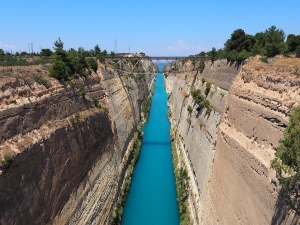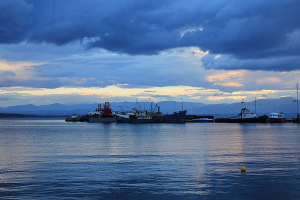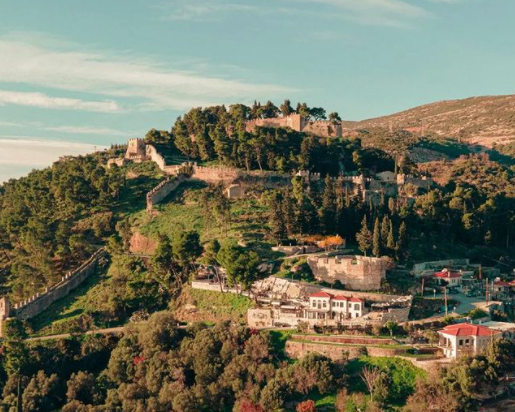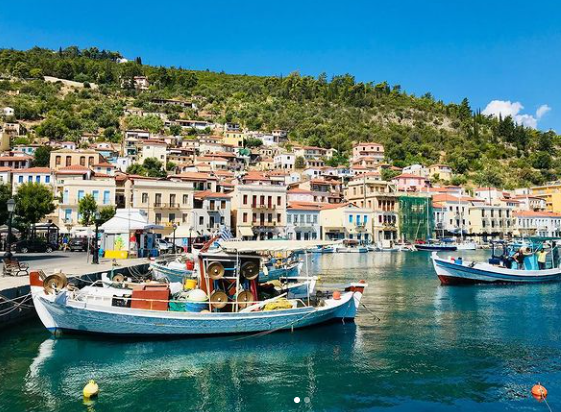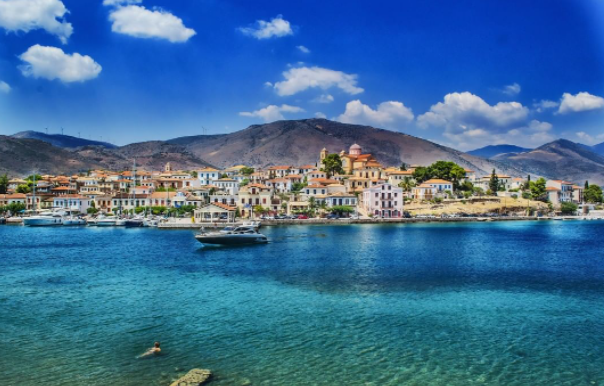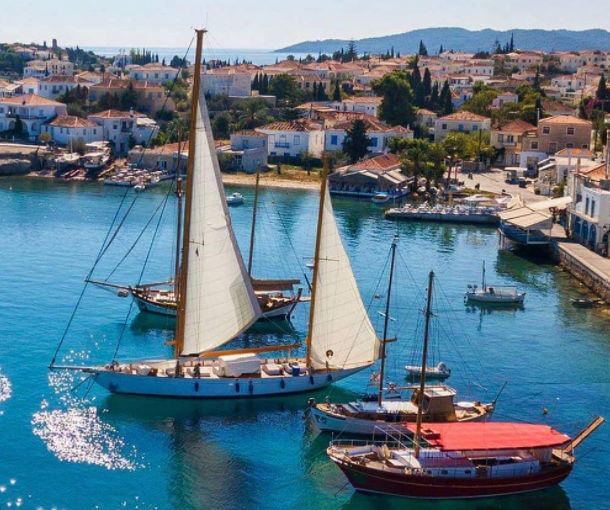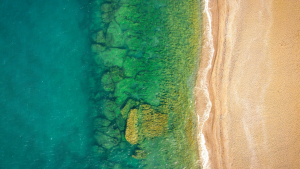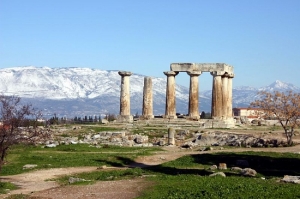Greece is known worldwide as a land of such beauty and magic that it inspired myths that have persisted for thousands of years. The mainland, the islands, the ocean: a collection of natural beauty unlike any other on earth.
It's not just natural beauty here, though; man-made marvels that have lasted through the ages adorn the land and bring a level of cultural richness and historical significance that few lands can still lay claim to. Greece is one of the most favored tourist hotspots on the planet, but what options are there for luxury tourists who want to stay far from the maddening crowds and explore Greece's physical and cultural landscapes in a respectful, appreciative, unusual way? Let's take a look.

Not The Average Greek Vacation
While there are some stops on the tourist track that are unmissable (the museums, the ruins, the gorgeous white and blue homes clinging to the side of the hills that rise from the ocean) there are other experiences off the beaten track and ones that cater to discerning travelers who are looking for something a little bit deeper with a little bit more of a luxurious edge. Charter a private plane, dial up your concierge service, pack your swimsuits, and let's experience Greece in an entirely new way.
The Islands Off the Beaten Path
These islands are the perfect choice for the visitor who seeks a quieter, more exclusive Greek destination.
-
Kythnos, Cyclades Islands
Luxury Stays: The Piperi Suites or Olos Luxury Villas.
Favored by Athenians in the know as a weekend escape, Kythnos is where you can retreat to get an authentic experience of the Greek people, their culture, and country. It's practically unknown to international tourists, so consider this a trade secret shared between friends. The island's capital, Hora, is car-free, so expect to do some walking, but pleasurable walking unimpeded by aggressive motorists. Tread the mule paths, dip in the hot springs that wind around, and catch sight of the castles and half-tumbledown ruins dotting the headlands. Get a taste of the island with magnificent, locally produced honey, classically heavy Greek wines, and robust cheeses while you're there.

Patmos, Dodecanese Islands
Luxury Stays: Patmos Aktis, a Luxury or Patmos Eye Boutique Hotel and Villas
While this isn't a typical tourist destination, it is the end of a pilgrimage route for those who seek to commune with St John at his Monastery or pay their respects at the Cave of the Apocalypse, where legend has it the book of Revelation was penned. If these pursuits don't speak to you, fear not: the collection of pebbly and sandy beaches is the perfect place to relax after taking yourself on a nature stroll through the fields of orchids that burst forth from the soil when spring arrives.
Syros, Cyclades Islands
Luxury stays: Aristide Hotel, an SLH Hotel, or Ploes
Though the “heydays” of the island in the sense of it being one of the wealthiest in all of Greece are behind it, that faded opulence has a special, nostalgic quality that draws people in. Take your time and explore the marvellously unique neoclassical streets of Ermoupolis and pause to embrace history at the acropolis of Kastri. Pack your hiking boots if you’re visiting this island because some of the most beautiful views are available as you weave across the jagged, rocky cape and find the treasure under the rainbow: a little beach at the end of almost every trail.
Karpathos, Dodecanese Islands
Luxury stays: Orelia Luxury Villas (Amoopi) or Althea Boutique Hotel (adults only).
While beaches aren’t all that Greece has to offer, there is something to be said for setting aside a day to take it easy and bask on a rock or in the sand of a stunning Greek beach. Karpathos has much to offer, but a far quieter and more exclusive version than those on the more well-travelled islands like Mykonos. The villages on this island add another special layer of character to the experience, especially Olympos, which is known as the Balcony of the Aegean thanks to the exquisite views of the never-ending ocean. Here you’ll find groves of mint and citrus winding their way drunkenly down the mountain and the occasional outdoor oven the locals still use to make heavenly breads and pastas.

Unusual, Luxury Greek Experiences
Whether on the islands or the mainland, Greece is full of exclusive luxury experiences and adventures if you know where to look
The Zakynthos Shipwreck Adventure
Navagio Beach, also called Smuggler's Cove or Shipwreck Beach, is one of Greece's most iconic sights. In this small bay, smugglers once plied their illegal trade, and in 1980, the MV Panagiotis ran around in the clear blue bay, creating an adventure site with exclusive, guided dive tours. That said, the beach is frequently closed to visitors due to safety concerns, as the surrounding cliffs are unstable and prone to rockfalls. Local authorities regularly assess the area and may restrict access without notice, especially during or after heavy rains or seismic activity. Always check ahead and follow official guidance to avoid disappointment.
Paros’ Kitesurfing and Water Sports Scene
If you’re a thrill seeker or adrenaline junkie, this one's for you. The consistent winds that scour the coast of Paros make for excellent kite and windsurfing conditions. Access to scuba diving provides a calm escape below the waves and entrance into an underwater paradise that simply can't be beaten.
A Foodie Tour of Athens’ Michelin-Starred Restaurants
Athens is hardly off the beaten path, but it does bear visiting for many reasons, including all the cultural and gastronomic attractions. From souvlaki and gyros on every corner to a selection of Michelin-starred restaurants, Athenian cuisine is overflowing with the freshest ingredients crafted into classic and contemporary Greek dishes. There's Delta, with two Michelin stars, Hytra with one star, and Varoulko Seaside (also one star) for a range of avant-garde, classic with a flair, and traditional Greek dishes that will haunt your dreams forever.
Far From The Maddening Crowds
Your luxurious Greek vacation will be one so enriching, so enjoyable, and so exciting that you’ll want to repeat it year after year. The only thing left to do is decide where you’ll go first and what you’ll do when you get there.



